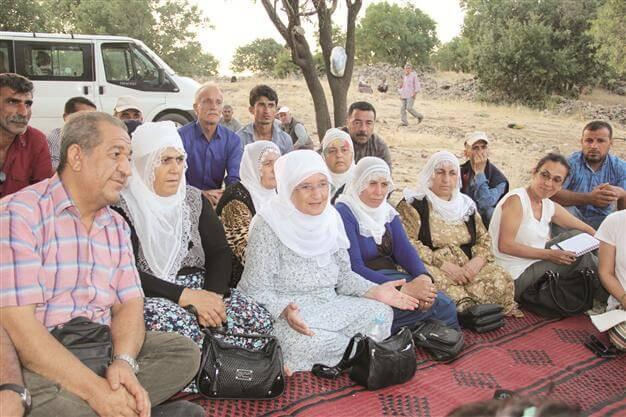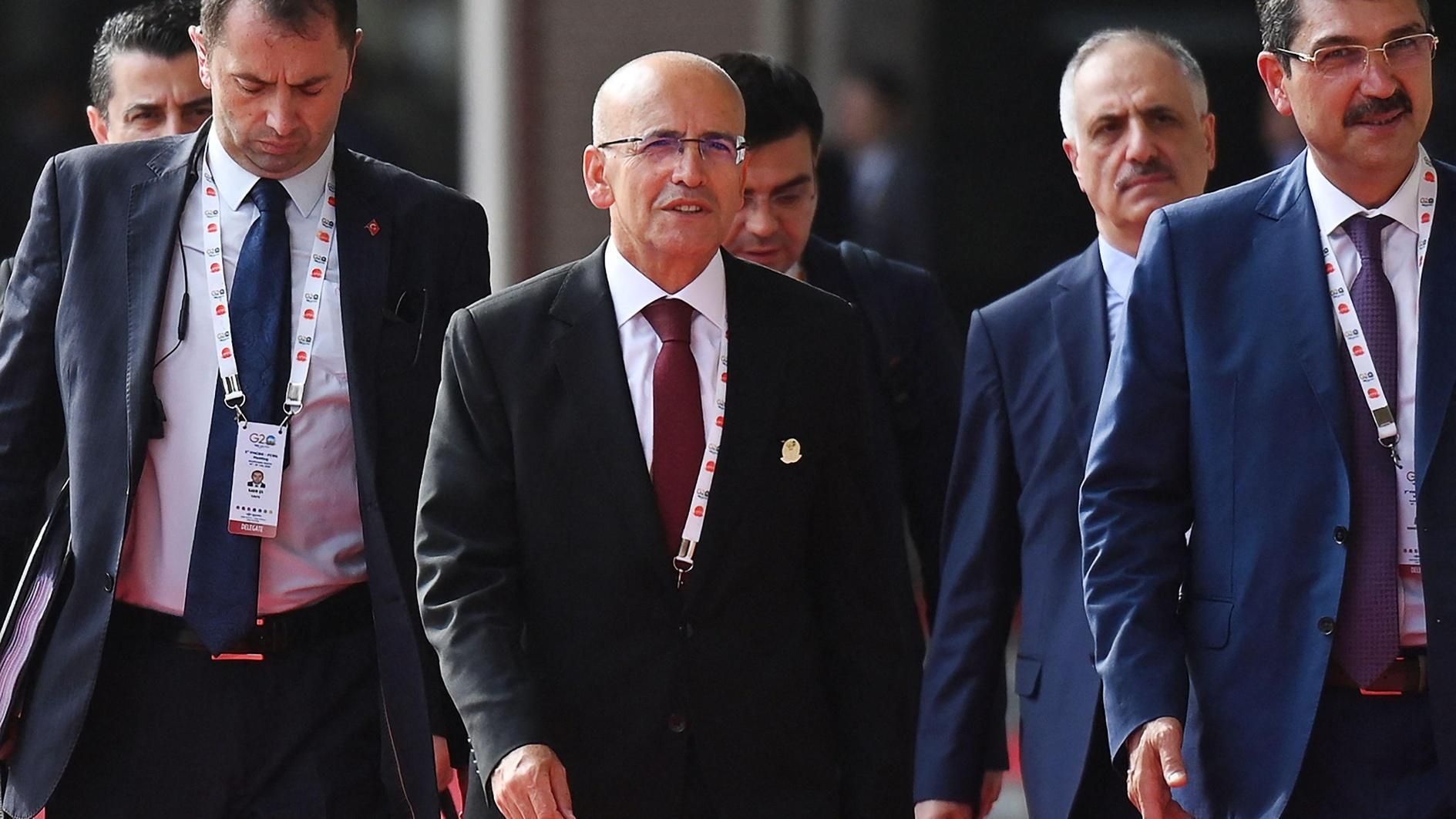Elders stand in Turkish clash zones ‘to prevent sons from being killed’
Özgür Korkmaz - DİYARBAKIR

CİHAN photo
A group of elderly locals have been camping for over eight days in a mountainous area just outside the Lice district of the southeastern province of Diyarbakır, describing themselves “voluntary human shields trying to prevent our sons from getting killed.”Tension in Turkey’s southeast have been running high amid clashes between the security forces and outlawed Kurdistan Workers’ Party (PKK) militants and continuing police raids on troubled neighborhoods in city centers, which often result in injuries and even deaths.
In such a situation, hundreds of locals have voluntarily flocked to the Fis Plain. The plain is known as the birthplace of the PKK since the outlawed group held its first congress in the region in 1978, and deadly clashes broke out between the military and the militants in the area over a week ago.
One of the people in the “voluntary human shield” group is 80-year-old Sakine Arat, who has lost five of her 10 children in the decades-long Kurdish conflict.
“The ones they call terrorists are our sons, daughters, nephews. How can we let the military kill them? We do not want our sons or the soldiers be killed. How many more people must die before this war is over?” Arat said.
The human shield issue became a hot subject recently with people, often including Kurdish politicians and lawmakers from the Peoples’ Democratic Party (HDP), appearing in the areas where the Turkish military has conducted operations against the PKK militants. The military, which usually suspends operations in such cases, has been accusing the outlawed PKK of using civilians as “human shields” to prevent military operations.
In the latest incident in Fis Plain that took place on Aug. 18, the Turkish General Staff said PKK militants infiltrated themselves within a group of civilians and opened fire on soldiers, killing three.
“A group of 100-150 people came in 40-50 vehicles from the direction of the Gömeç village and became human shields during an operation by the gendarmerie special forces to re-open the Diyarbakır-Bingöl highway blocked by terrorists,” the General Staff said in a written statement. “Terrorists who had infiltrated the said group opened fire on our soldiers. Two of our personnel were killed and one of our personnel was injured.”
The soldier injured in the attack, Lt. Hubeyib Turan, succumbed to his injuries one day later.
According to locals in the Fis Plain, the PKK militants are located to the west of the campsite and the soldiers occasionally appear in the woodlands to the east of the area. They claimed that soldiers occasionally opened gunfire in what they described as “harassment to force the civilians out of the area.” The group on the plain said they had not been directly targeted by the military, and their presence in the area had also prevented soldiers’ deaths.
The busy campsite appeared to have no logistical problems, with constant distribution of food and water. Although the soldiers have blocked the Diyarbakır-Bingöl highway near the area, cars came and went using the narrow village roads without any checkpoints.
A poster of Abdullah Öcalan, the jailed leader of the outlawed PKK, was flying on the rocks overlooking the site, along with the flags of the PKK and the People’s Protection Units (YPG), the armed wing of the Syrian-Kurdish Democratic Union Party (PYD). A spokesman for the group, who asked not be named, rejected any affiliation with the outlawed PKK, “or any other group the military says we are.”
Not having left the area for over a week, Arat said the responsibility for solving the Kurdish problem falls on the shoulders of the politicians.
“We have sent 550 lawmakers to parliament, what are they doing there?” she asked. “We [Kurds] have no more patience, either exterminate us, or give us our rights.”
Known many as Sakine Ana (Mother Sakine) to many, Arat lost one son in hunger strikes after the 1980 military coup in the notorious Diyarbakır Prison. Two of her sons later joined the PKK and were killed in clashes, while she lost another son in a suspicious traffic accident and her daughter committed suicide when she learned that prosecutors were seeking a death sentence for one of her brothers.
“We have been suffering this pain for 40 years because we were born with the crime of being Kurds,” Arat said. “They say only Turks live in Turkey, the Kurds either end up in jail or dead.”
Arat said she was just one of the thousands of Kurdish mothers in pain, adding that the situation of the soldiers’ mothers was not much different.
“Turkish mothers are also in pain,” she said. “They send their sons to the army with festivities as proud mothers, have dreams for them after they come back, but their sons come back in coffins. The mothers are forced to keep silent, they live their pain in silence. Enough already, we want no sons to die on these lands.”
















